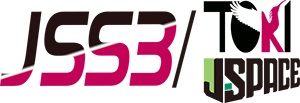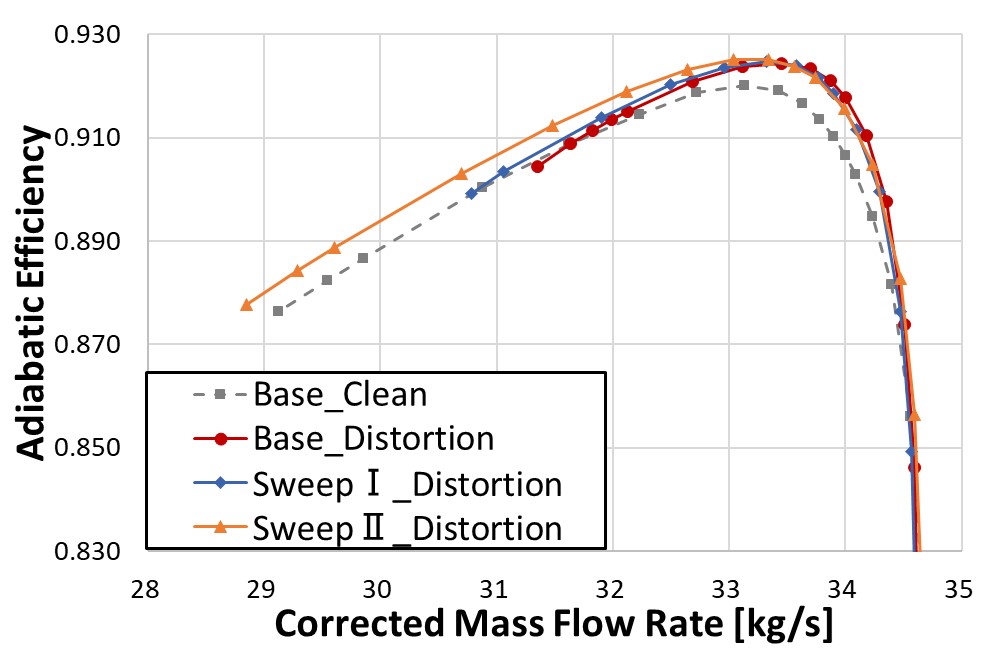Study of the Effect of Boundary Layer Ingestion (BLI) on Aircraft Propulsion / Distributed Propulsion Technology with Superconducting Motors
JAXA Supercomputer System Annual Report February 2023-January 2024
Report Number: R23EDA201P55
Subject Category: Aeronautical Technology
- Responsible Representative: Atsushi Kanda, Aviation Technology Directorate, Aviation Safety Innovation Hub
- Contact Information: Keiichi Okai, Aeronautical Technology Directorate, Aviation Environmental Sustainability Innovation Hub(okai.keiichi@jaxa.jp)
- Members: Miyuki Aoki, Kakeru Ando, Tomoya Kogirima, Junichi Kazawa, Keiichi Okai
Abstract
In this study, we evaluate the unsteady aerodynamics of an aircraft propulsion fan under strongly distorted inflow conditions simulating an airframe/engine integration configuration with Boundary Layer Ingestion (BLI) benefits suited for future electric aircraft. Under these BLI conditions, aircraft fan suffers strongly distorted inflow conditions, thereby the present study investigates the fan flows in detail through the numerical simulations.
Reference URL
N/A
Reasons and benefits of using JAXA Supercomputer System
The fan performance analysis under asymmetric distortion conditions requires unsteady full-annulus calculations, which increases the computational scale.
Achievements of the Year
The effect of forward swept rotor blades on the flow field was investigated under inlet conditions that simulate the inlet distortion of a fan embedded in the fuselage, which is assumed in electric aircraft. As a result, as shown in Fig. 1, the stall margin is significantly improved by the sweep geometry. The dimensionless vorticity at 99% span shown in Fig. 2 indicates that the sweep suppresses the development of blade tip leakage vortices.
Publications
N/A
Usage of JSS
Computational Information
- Process Parallelization Methods: MPI
- Thread Parallelization Methods: N/A
- Number of Processes: 81 – 120
- Elapsed Time per Case: 24 Hour(s)
JSS3 Resources Used
Fraction of Usage in Total Resources*1(%): 0.66
Details
Please refer to System Configuration of JSS3 for the system configuration and major specifications of JSS3.
| System Name | CPU Resources Used(Core x Hours) | Fraction of Usage*2(%) |
|---|---|---|
| TOKI-SORA | 15251982.83 | 0.69 |
| TOKI-ST | 31225.33 | 0.03 |
| TOKI-GP | 0.00 | 0.00 |
| TOKI-XM | 0.00 | 0.00 |
| TOKI-LM | 209232.05 | 15.94 |
| TOKI-TST | 432.02 | 0.01 |
| TOKI-TGP | 0.00 | 0.00 |
| TOKI-TLM | 0.00 | 0.00 |
| File System Name | Storage Assigned(GiB) | Fraction of Usage*2(%) |
|---|---|---|
| /home | 1697.46 | 1.41 |
| /data and /data2 | 208277.69 | 1.28 |
| /ssd | 193.08 | 0.02 |
| Archiver Name | Storage Used(TiB) | Fraction of Usage*2(%) |
|---|---|---|
| J-SPACE | 0.00 | 0.00 |
*1: Fraction of Usage in Total Resources: Weighted average of three resource types (Computing, File System, and Archiver).
*2: Fraction of Usage:Percentage of usage relative to each resource used in one year.
ISV Software Licenses Used
| ISV Software Licenses Used(Hours) | Fraction of Usage*2(%) | |
|---|---|---|
| ISV Software Licenses(Total) | 5481.06 | 2.47 |
*2: Fraction of Usage:Percentage of usage relative to each resource used in one year.
JAXA Supercomputer System Annual Report February 2023-January 2024




